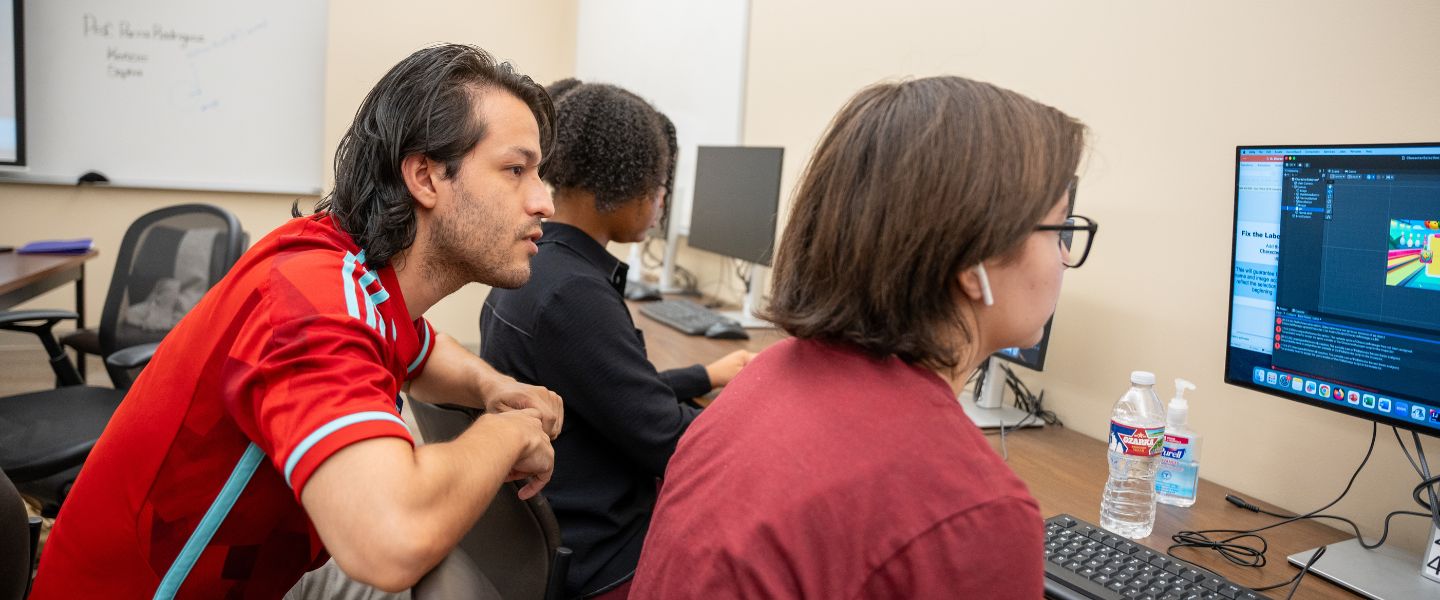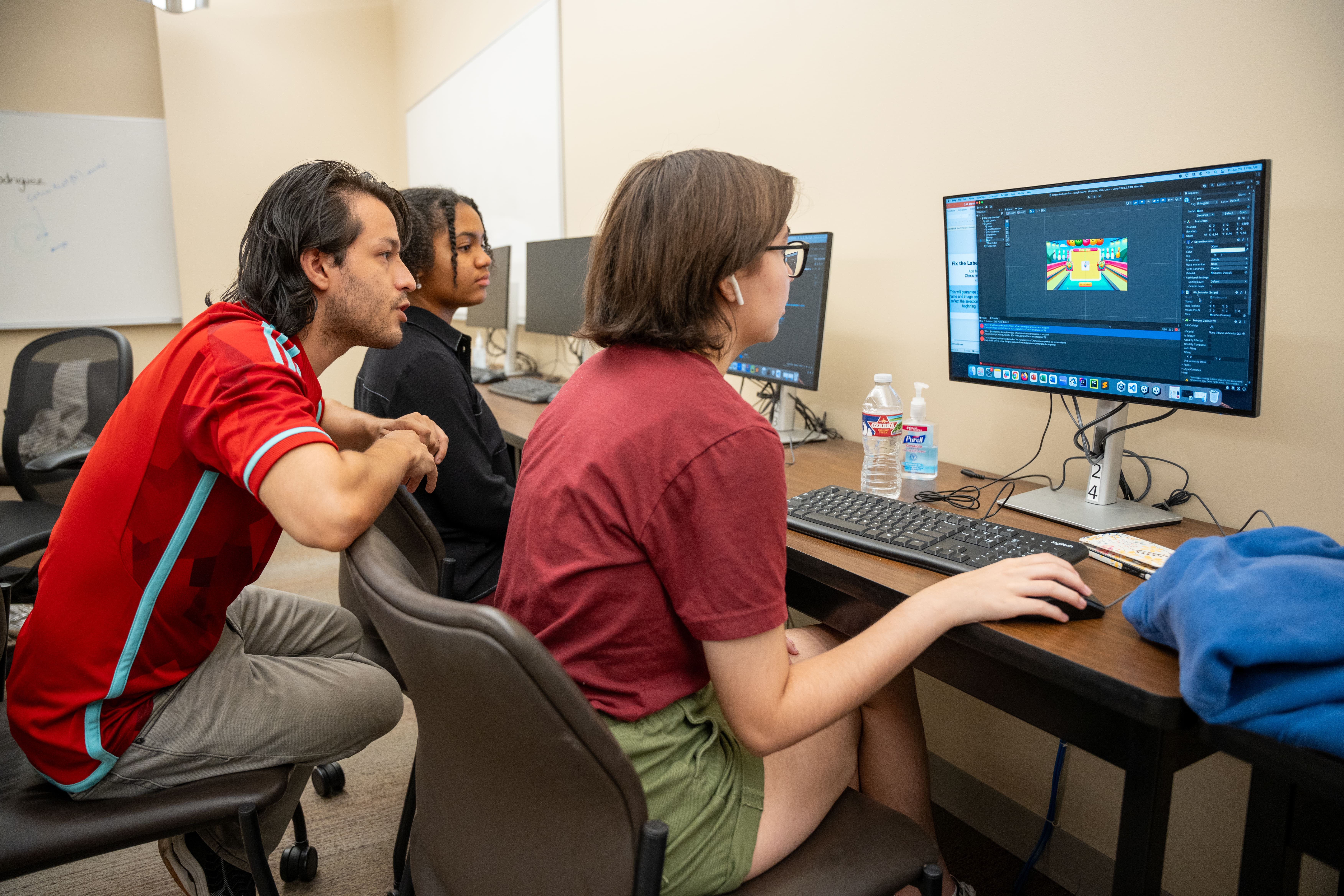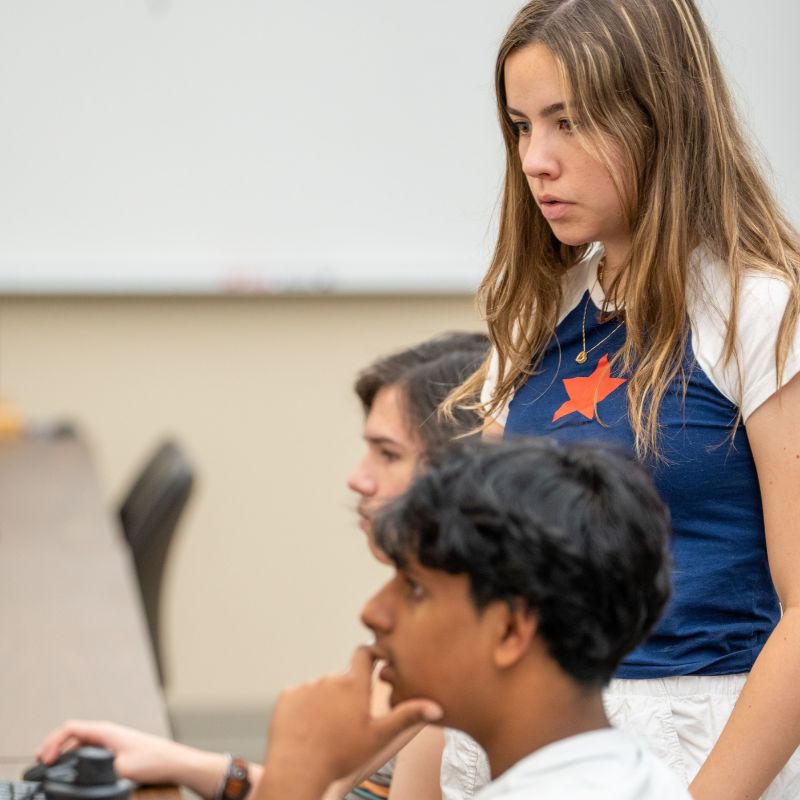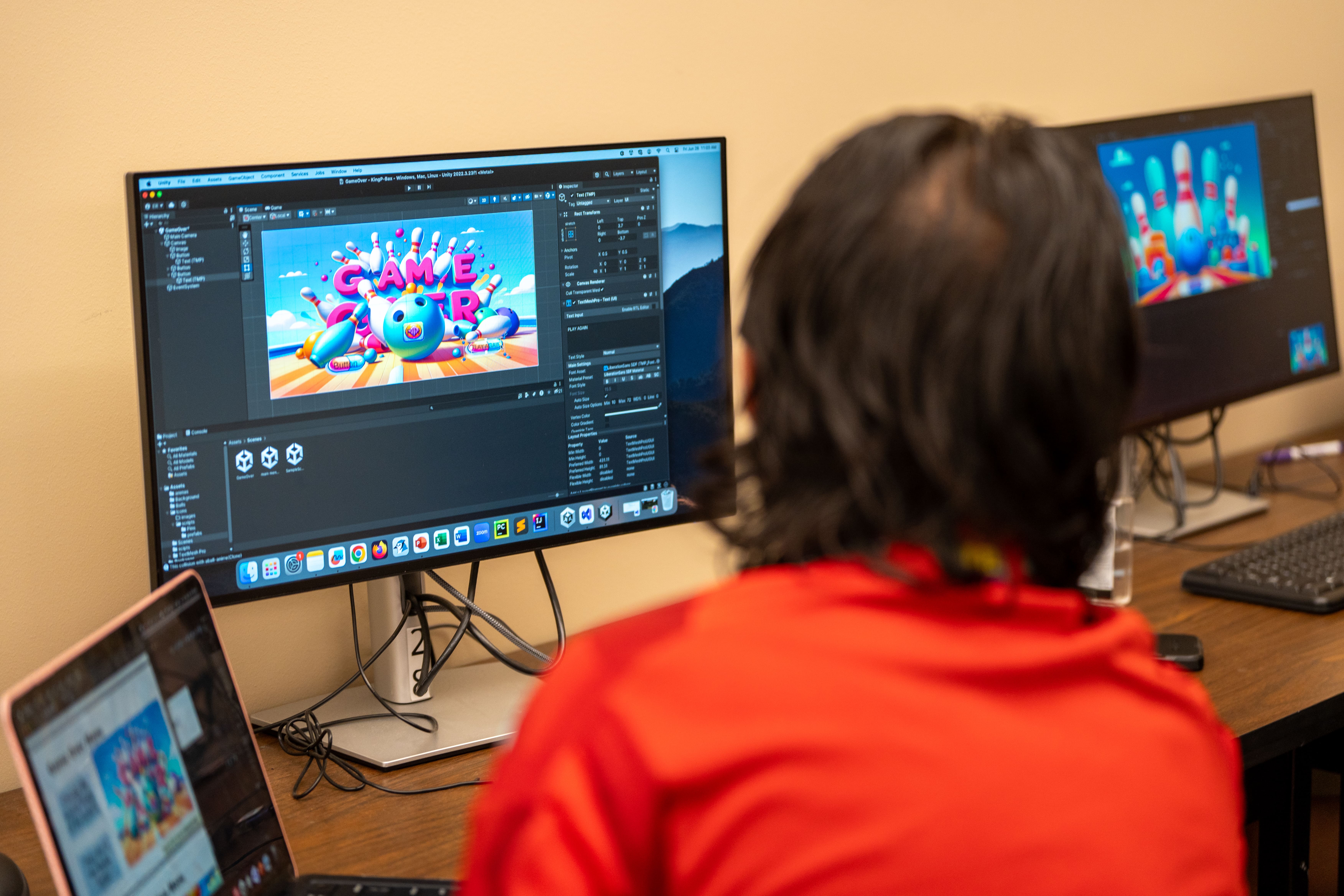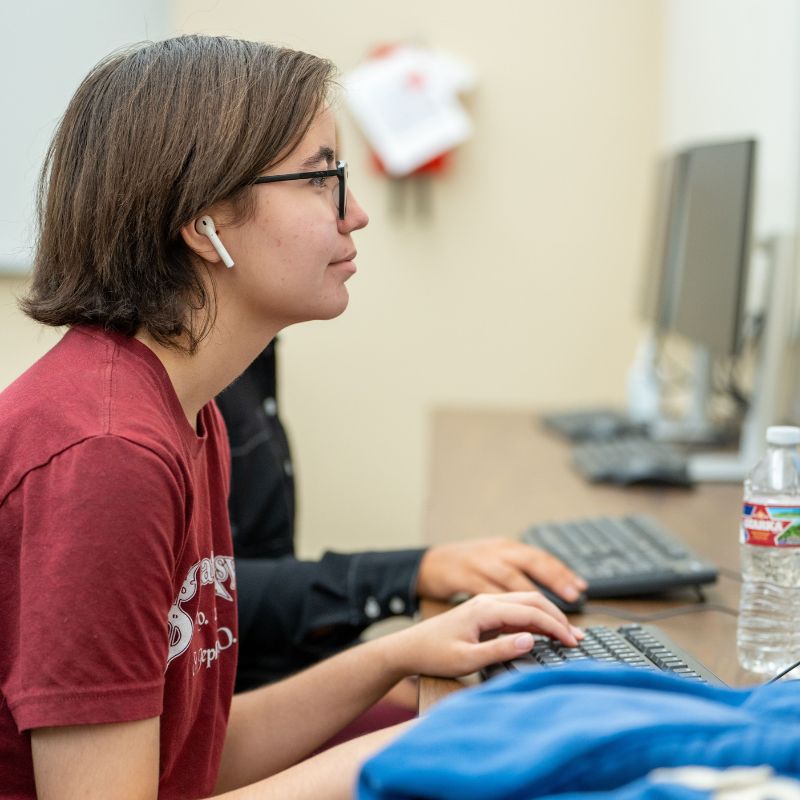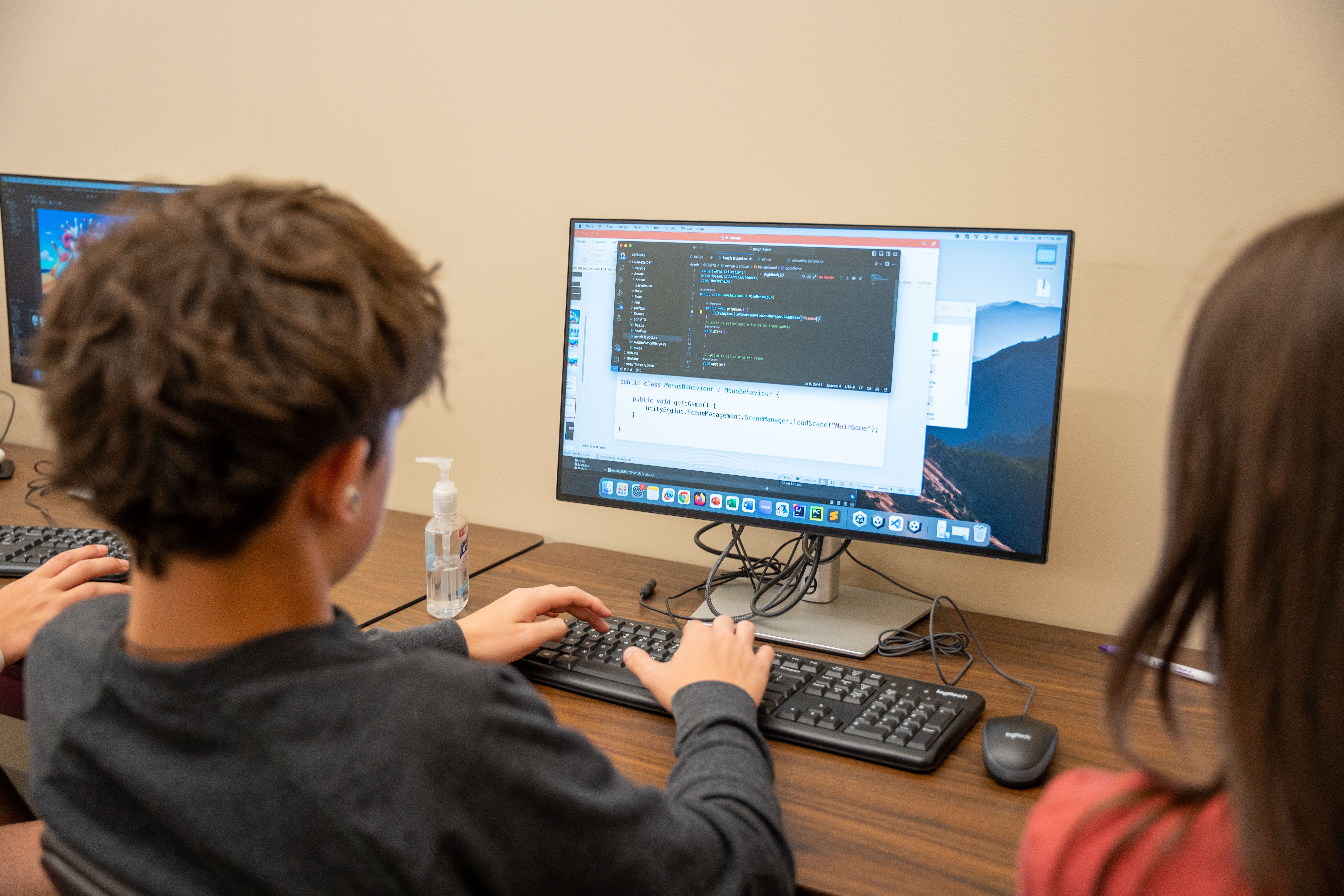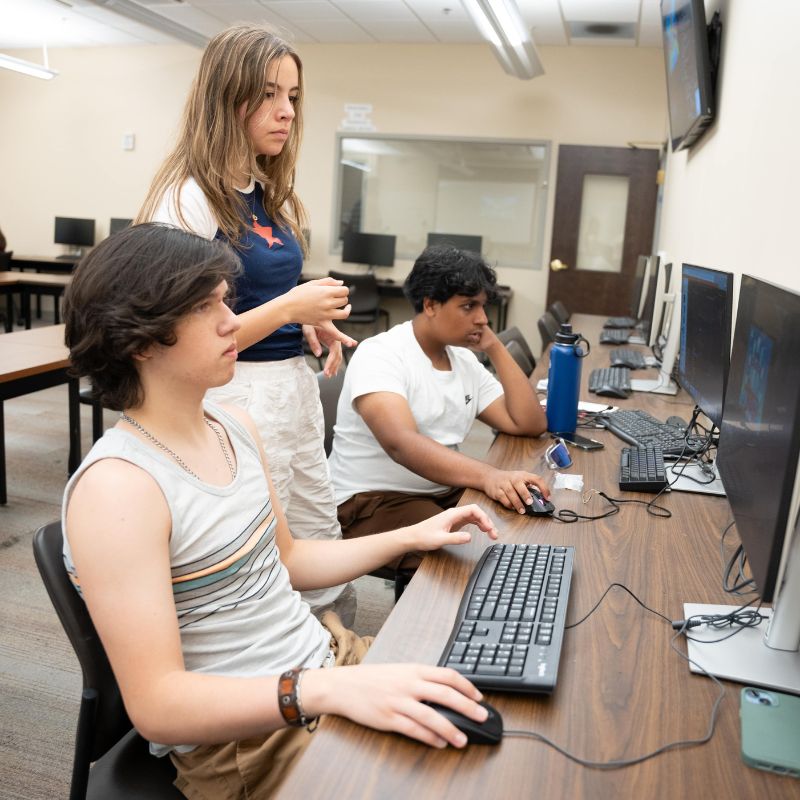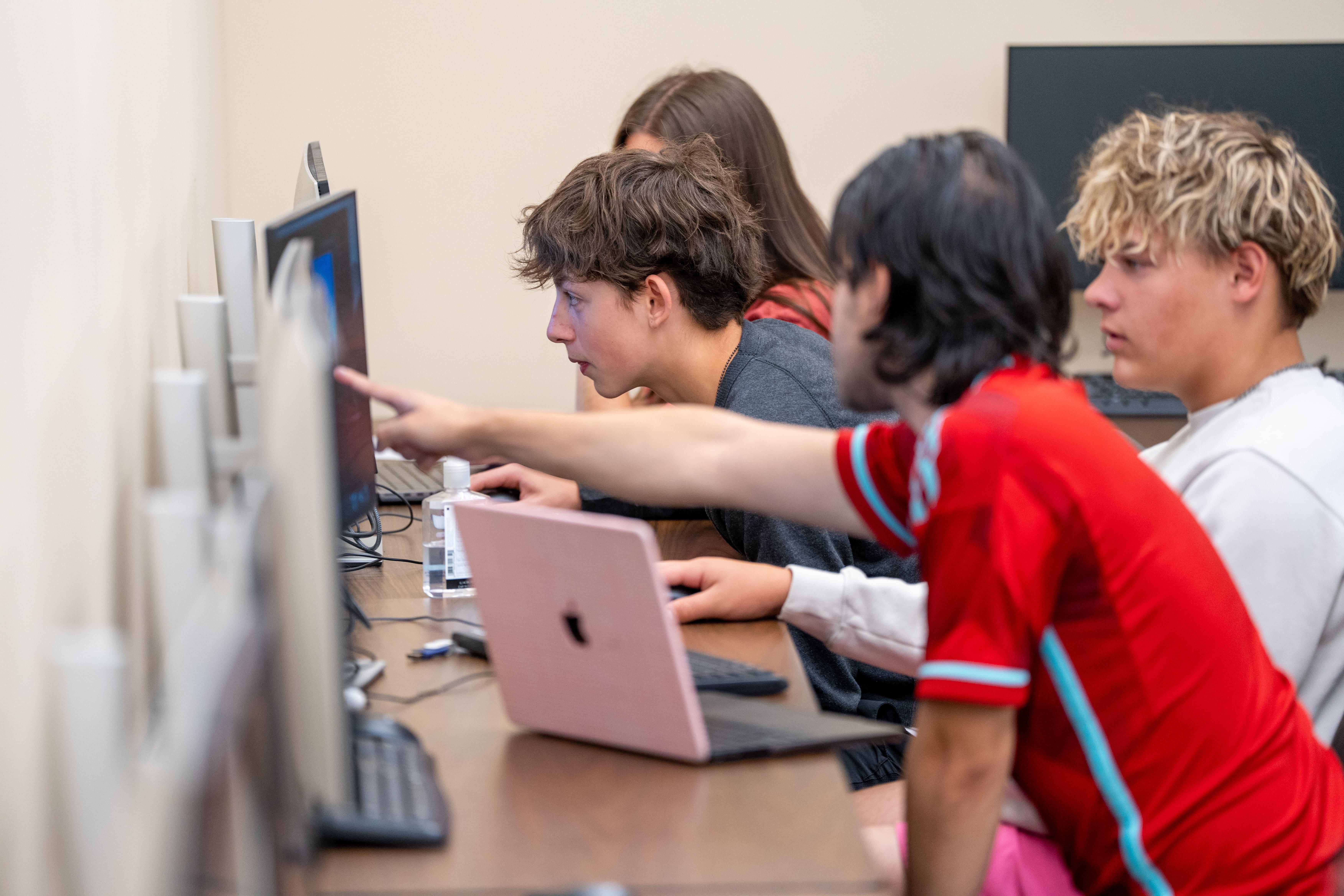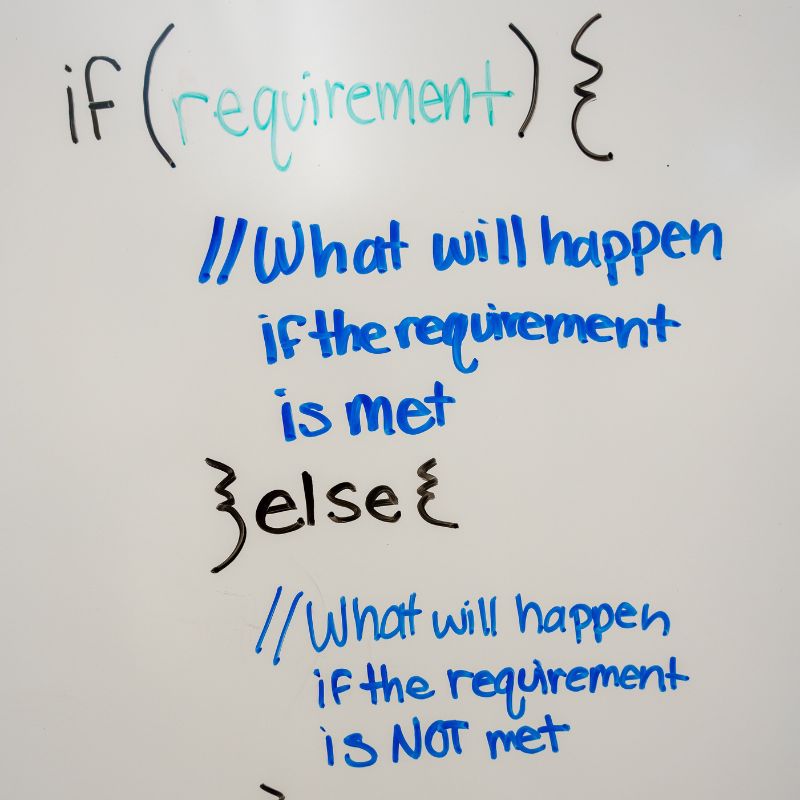Teaching high school students coding skills and creativity through video games
Though most Belmont students are off campus for the summer, Assistant Professor of Computer Science Esteban Parra Rodriguez welcomed high school students to campus in June for the University’s Game Design & Programming camp. The one-week camp taught participants coding skills and the framework to build their own video game.
Parra Rodriguez founded the camp in 2023 as an avenue for students to not only learn and implement code but also provide an environment that facilitates creativity and critical thinking.
Camp participants create their physics-based game using the Unity engine. The player controls a bowling pin and attempts to avoid bowling balls that hurl themselves towards the pin. While initially appearing simple, the student programmers must not only understand collision physics and speed mechanics, but how to properly code these elements.
“As a game designer, they have to make choices that won’t make the game frustrating,” said Parra Rodriguez. “For example, we set the speed of the balls and have to determine what a reasonable speed is for a human to move the pin and dodge the balls. They are splitting problems into pieces and solving them in addition to coding and learning about game development.”
The game template that each participant starts with is the same, but they are free to add personal touches to their game such as character models, colors and other design elements.
Because attendees arrive with different levels of coding experience, the camp is designed to walk participants through the basics of coding independent mechanics with lessons that build upon one another to create a full game.
For those looking for an additional challenge, Parra Rodriguez tasks students with adding additional functionality to their game without instructing them how exactly to do so, empowering them to think critically and further explore the code they are working with.
Aiding Parra Rodriguez are Belmont sophomores Sophia Willingham and Kenzie Felix. Willingham is double majoring in computer science and songwriting, while Felix is double majoring in computer science and audio engineering technology.
“Although they move at different paces, everyone is learning something that they enjoy at the end of the day,” said Willingham. “Some realize they really like the coding aspect while others prefer the design aspect — the way the features work and how to make things more aesthetic. There are so many things that go into the overall design, so it’s great for them to figure out what they like.”
At the end of the camp, a showcase is held for participants to show off their creations in front of their peers, parents and friends.
“It’s always fun to watch other people having fun, and games are designed to be fun,” smiled Rodriguez. “It rewarding to see them, at their age, working through errors and watching coding get easier for them.”
Willingham agreed. “People inherently like to be good at things, but just like in sports or anything else, coding takes time and practice. That’s what makes a camp experience like this great,” she said. “Instead of giving up, we make them work through problems and walk them through the learning process. Seeing them realize that they can figure it out and the sense of achievement they feel after completing something difficult is really great.”
Learn More
Learn more about Science & Mathematics Camps at Belmont

